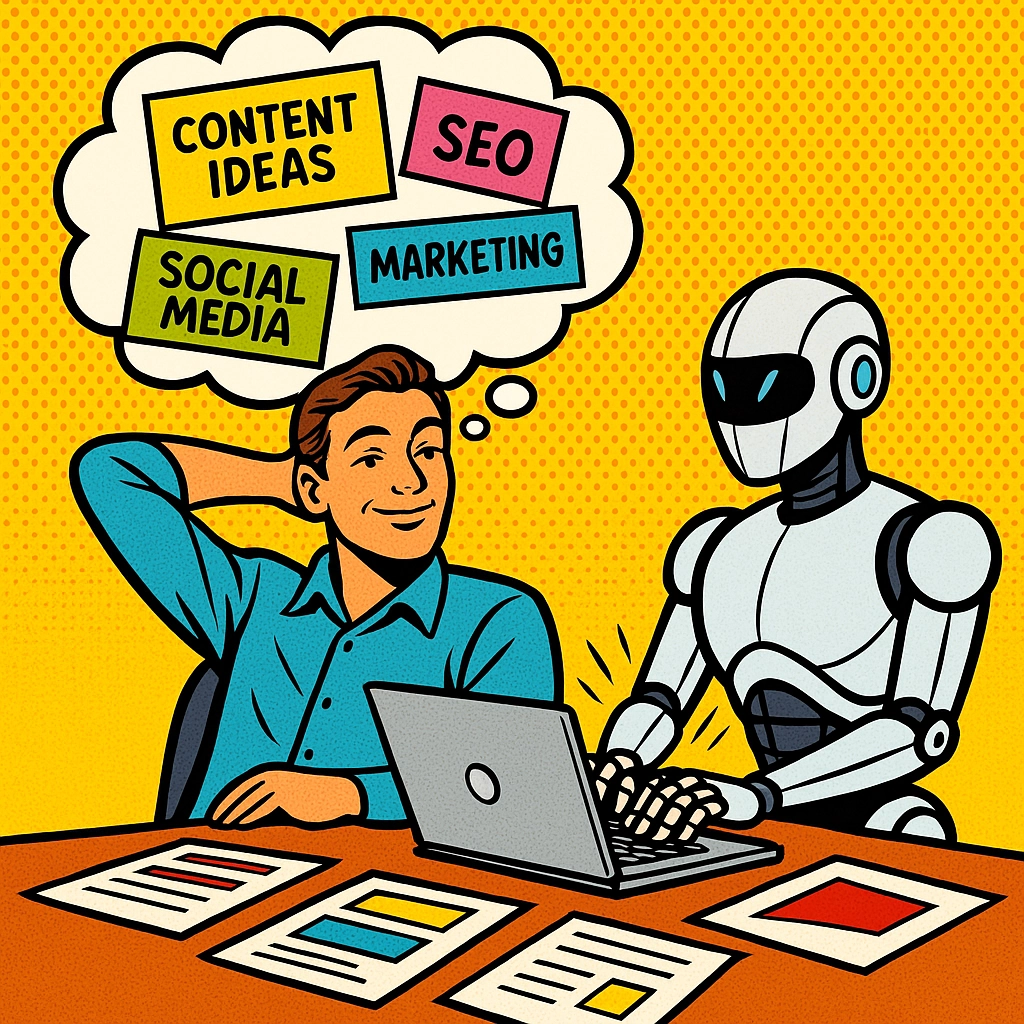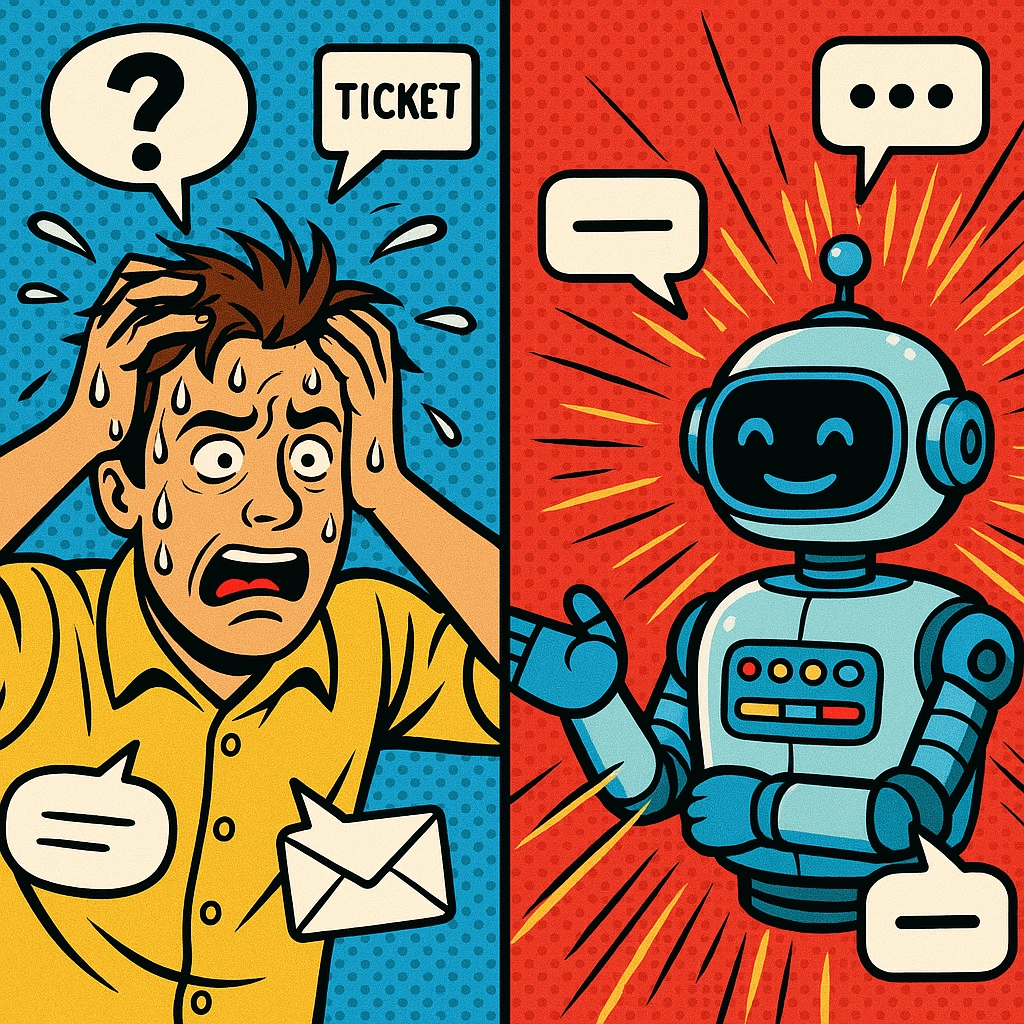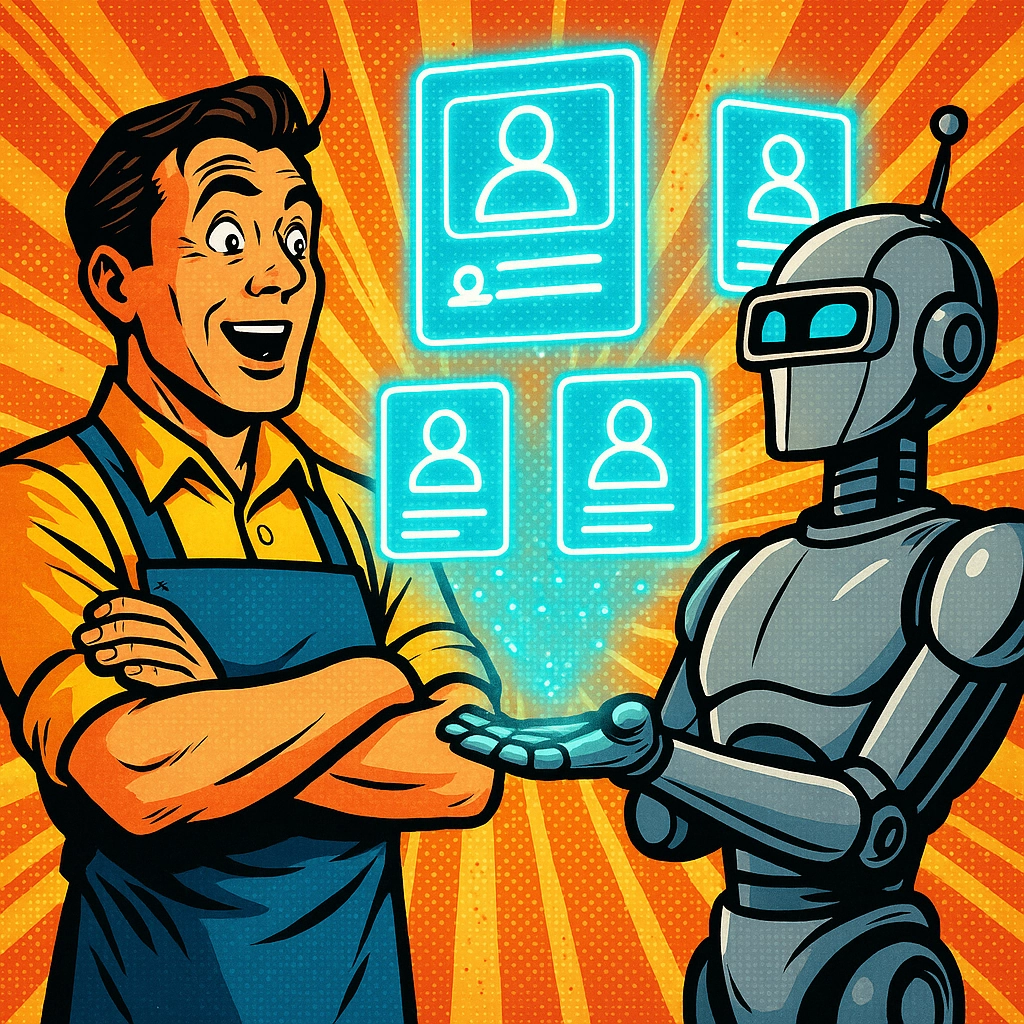Small businesses face a perpetual challenge: achieving big marketing results with limited resources. Today, artificial intelligence has become the great equalizer, allowing solopreneurs and small teams to compete with larger corporations without breaking the bank or burning out.
In this comprehensive guide, we'll explore how AI can transform your small business marketing efforts, automating time-consuming tasks while delivering personalized customer experiences that drive growth.
Why Small Businesses Need AI Marketing Now
The marketing landscape has fundamentally changed. Customers expect personalized experiences, content needs to be frequent and high-quality, and data analysis is no longer optional. For small businesses, this creates a seemingly impossible equation:
"The difference between thriving and merely surviving as a small business today isn't working harder—it's leveraging AI to work smarter."
Traditional approaches simply can't keep pace with these demands without significant staff expansion. AI bridges this gap, providing enterprise-level capabilities without enterprise-level resources.
Key Benefits of AI Marketing for Small Businesses
Before diving into specific strategies, let's understand what makes AI so transformative for small business marketing:
| Benefit | Traditional Marketing | AI-Powered Marketing |
|---|---|---|
| Content Creation | 3-4 hours per blog post | 20-30 minutes per post |
| Customer Segmentation | Basic demographics | Behavioral + predictive insights |
| Campaign Analysis | Surface-level metrics | Deep performance analytics |
| Personalization | Limited by team size | Automated at scale |
| Testing & Optimization | A/B testing limited samples | Continuous multi-variant testing |
| Content Planning | Mostly guesswork | Data-driven topic selection |
Now, let's explore the practical ways to implement AI in your marketing efforts.
1. Content Creation & Management
Content remains king, but creating quality material consistently is time-intensive. AI can dramatically accelerate this process.
Blog Content Generation
AI writing assistants can help you:
- Draft complete blog posts based on simple prompts
- Generate topic ideas based on trending searches in your industry
- Optimize existing content for SEO
- Create variations for different platforms

At Marblism, we've seen how AI blog writers like Penny can transform content production. Instead of staring at blank screens, small business owners can provide simple direction and receive publish-ready content that maintains their brand voice.
"AI doesn't replace human creativity—it amplifies it, turning your knowledge into a content engine that works around the clock."
Social Media Management
Social presence requires consistency and creativity, two things small businesses often struggle to maintain alongside other responsibilities. AI tools can:
✓ Generate platform-specific content calendars
✓ Create caption variations with targeted hashtags
✓ Schedule posts for optimal engagement times
✓ Monitor engagement and suggest response strategies
✓ Identify trending topics relevant to your audience
Our AI social media manager Sonny handles these tasks for businesses that previously struggled with maintaining their social presence, turning one-person operations into social media powerhouses.
2. Customer Insights & Targeting
Understanding your audience at a granular level used to require expensive market research. AI democratizes these capabilities.
Audience Segmentation
AI analyzes customer behavior across touchpoints to identify:
- Purchase patterns and product affinities
- Content engagement preferences
- Response rates to different messaging styles
- Optimal contact frequencies and timing
- Probability of conversion for different offers
This intelligence allows even the smallest businesses to create targeted campaigns that resonate with specific audience segments.
Predictive Analytics
Beyond understanding current customers, AI excels at identifying:
□ Which prospects are most likely to convert
□ When existing customers might be ready to repurchase
□ Which products to recommend to specific segments
□ Early warning signs of customer churn
□ Lifetime value projections for new customers
3. Conversation & Relationship Management
Building relationships at scale has always been challenging for resource-constrained businesses. AI changes the equation.
Email Marketing Enhancement
AI transforms email from broadcast medium to conversation tool:
- Personalized subject lines that increase open rates by 26%
- Content tailored to individual engagement history
- Send-time optimization for each recipient
- Follow-up sequencing based on recipient actions
- Automated A/B testing for continuous improvement
"The businesses that win don't just send more emails—they send the right emails to the right people at the right time. AI makes this possible for companies of any size."
Customer Support Automation

AI can handle routine inquiries while escalating complex issues to humans:
✓ 24/7 availability for common questions
✓ Consistent responses across all channels
✓ Personalized recommendations during support interactions
✓ Reduced response times (from hours to seconds)
✓ Support staff focused on high-value interactions
For example, an AI executive assistant like Eva can manage customer communications, ensuring timely responses while organizing information for your review.
4. Lead Generation & Sales Support
Converting marketing efforts into sales opportunities remains the ultimate goal. AI excels at bridging this gap.
Prospect Identification
AI tools can continuously scan for potential customers:
- Identify businesses matching your ideal customer profile
- Find decision-makers within target organizations
- Gauge purchase intent through digital behavior
- Score leads based on likelihood to convert
- Suggest personalized outreach strategies
Our AI sales representative Stan helps small businesses identify and prioritize high-potential leads, focusing limited sales resources where they'll have the greatest impact.

Sales Process Enhancement
Once prospects are identified, AI continues supporting the sales process:
□ Creating personalized outreach sequences
□ Suggesting optimal contact times
□ Drafting customized proposals
□ Answering prospect questions in real-time
□ Identifying cross-sell and upsell opportunities
5. Advertising Optimization
Digital advertising can quickly consume budgets without delivering results. AI makes advertising more efficient and effective.
Budget Allocation
AI continuously analyzes ad performance to:
- Shift spending to top-performing channels in real-time
- Identify diminishing returns and adjust spending accordingly
- Forecast performance of new creative approaches
- Recommend budget levels for maximum ROI
- Identify new audience segments worth targeting
Creative Optimization
Beyond budget management, AI improves the ads themselves:
✓ Generate multiple ad variations from core messaging
✓ Predict CTR and conversion rates before deployment
✓ Suggest image and copy combinations for specific segments
✓ Adapt messaging based on competitive positioning
✓ Create personalized ad experiences for returning visitors
Implementation Strategy: Starting Small
The breadth of AI marketing capabilities can seem overwhelming. Here's how to begin your implementation:
- Audit your current marketing processes to identify the most time-consuming tasks with the least creative requirements
- Start with a single AI application rather than attempting wholesale transformation
- Measure results rigorously, comparing AI performance to your previous methods
- Gradually expand AI responsibilities as you become comfortable with the technology
- Retain human oversight for strategy, brand voice, and relationship management
"The most successful small businesses don't try to implement every AI capability at once. They start with their biggest pain points and build from there."
Ethical Considerations for AI Marketing
As you implement AI in your marketing, keep these principles in mind:
□ Transparency about AI usage in customer interactions
□ Careful oversight of AI-generated content for brand alignment
□ Responsible data collection and usage policies
□ Regular auditing of AI systems for bias or problematic outputs
□ Maintaining the human touch for sensitive communications
The Future Is Collaborative
The most effective marketing approach isn't choosing between human creativity and AI efficiency—it's combining them. At Marblism, we've seen small businesses thrive by deploying AI employees who handle routine marketing tasks while human team members focus on strategy and relationship building.
This collaborative approach gives small businesses the scale of larger competitors without sacrificing the personal touch that makes them special. The result is marketing that's both more efficient and more effective.
Whether you're a solopreneur looking to expand your reach or a small marketing team trying to maximize impact, AI tools provide the leverage to compete in an increasingly complex landscape. The question isn't whether small businesses should adopt AI marketing—it's how quickly they can implement it before competitors do.
Ready to transform your small business marketing with AI? Start small, measure results, and build on your successes. The marketing department you've always wanted might not require additional headcount—just intelligent technology working alongside your existing team.











